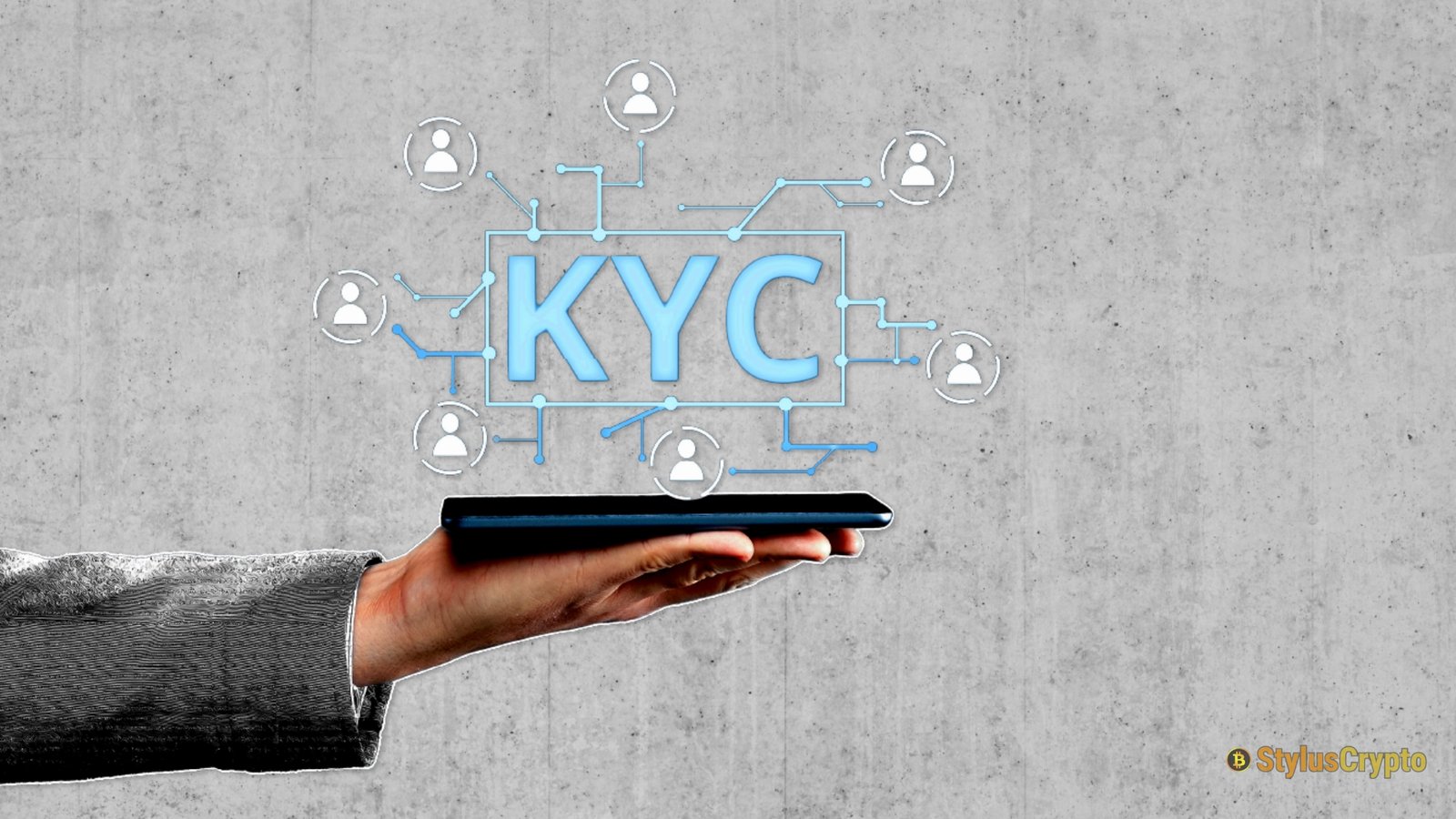Blockchain KYC: Blockchain technology has emerged as a transformative force in the rapidly evolving digital landscape, disrupting industries and redefining how we conduct transactions. One of the most significant applications of blockchain is identity verification, specifically through Know Your Customer (KYC) processes. Blockchain KYC is revolutionizing how businesses verify identities, ensuring compliance with regulatory requirements while enhancing security and user experience. In this article, we will explore the intricacies of blockchain KYC, its benefits, challenges, and potential to reshape identity verification’s future.
The Basics of KYC
Know Your Customer (KYC) is a process used by financial institutions and other businesses to verify the identity of their clients. It involves collecting and verifying personal information such as name, address, date of birth, and identification documents. The primary goal of KYC is to prevent fraudulent activities, money laundering, and terrorist financing by ensuring that customers are who they claim to be.
Traditionally, KYC processes have been manual and time-consuming, involving paper-based documentation and physical verification. This approach poses challenges in terms of efficiency and increases the risk of data breaches and identity theft.
Blockchain: A Game Changer for KYC
Blockchain technology offers a decentralized and immutable ledger to store and verify data securely. By leveraging blockchain for KYC processes, businesses can streamline identity verification, reduce costs, and enhance security. Here’s how blockchain KYC works:
- Decentralized Identity Verification: Blockchain allows for the creation of decentralized identities, where users control their personal information. Instead of storing data in a centralized database, which is vulnerable to breaches, information is encrypted and stored on a distributed ledger. Users can grant access to their data only when necessary, ensuring privacy and security.
- Immutable Records: Once data is recorded on a blockchain, it cannot be altered or deleted. This immutability ensures that identity information is tamper-proof, reducing the risk of fraud and ensuring data integrity.
- Efficient Data Sharing: Blockchain enables secure and seamless sharing of identity data across different organizations. With user consent, verified information can be accessed by multiple parties without repetitive verification processes, thus reducing redundancy and improving efficiency.
- Automated Compliance: Smart contracts, which are self-executing contracts with the terms of the agreement directly written into code, can automate compliance processes. They can ensure that KYC procedures are consistently followed and automatically update records in response to regulatory changes.
Benefits of Blockchain KYC
The integration of blockchain technology into KYC processes offers several benefits:
- Enhanced Security: Blockchain reduces the risk of data breaches and unauthorized access by decentralizing data storage and using cryptographic techniques. Users have control over their information, deciding who can access it and under what conditions.
- Cost Efficiency: Traditional KYC processes are resource-intensive, requiring significant workforce and time. Blockchain KYC reduces these costs by automating processes and minimizing the need for manual verification.
- Improved User Experience: With blockchain, users can experience faster onboarding as their verified information can be easily shared across platforms. This reduces the need for repetitive document submission and verification, enhancing customer satisfaction.
- Regulatory Compliance: Blockchain’s transparency and traceability make it easier for businesses to comply with regulatory requirements. Immutable records provide a clear audit trail, facilitating regulatory reporting and audits.
- Global Accessibility: Blockchain KYC can facilitate cross-border transactions and financial inclusion by providing a standardized and secure method for identity verification that is recognized globally.
Challenges and Considerations
While blockchain KYC offers numerous advantages, it also presents specific challenges and considerations:
- Standardization: There are no standardized protocols for blockchain KYC, which can lead to interoperability issues between different platforms and systems.
- Data Privacy: While blockchain enhances security, there are concerns regarding data privacy, particularly regarding how much information should be stored on the blockchain and how it can be accessed.
- Regulatory Uncertainty: The regulatory environment for blockchain technology is still evolving, and businesses must navigate varying legal frameworks across jurisdictions.
- Adoption and Integration: Implementing blockchain KYC requires significant system and process changes. Organizations must invest in technology and training to integrate blockchain successfully.
- Scalability: As the volume of transactions and data increases, scalability can become a concern. Blockchain networks must be able to handle large amounts of data efficiently.
The Future of Blockchain KYC
The future of identity verification lies in the continued development and adoption of blockchain KYC solutions. As technology matures and standards are established, we expect increased interoperability and collaboration between platforms and industries.
Several initiatives are already underway to harness the power of blockchain for KYC. For instance, decentralized identity platforms are being developed to create secure, portable digital identities. These platforms aim to empower individuals with control over their data while enabling businesses to verify identities efficiently.
Moreover, advancements in blockchain scalability, such as layer two solutions and sharding, will enhance the capability of blockchain networks to handle increased demand. These innovations will further solidify blockchain’s role in transforming KYC processes.
Conclusion
Blockchain KYC represents a paradigm shift in identity verification, offering a more secure, efficient, and user-friendly approach than traditional methods. While challenges remain, the potential benefits of blockchain in enhancing security, reducing costs, and improving compliance are undeniable. As the digital landscape continues to evolve, blockchain KYC is poised to play a pivotal role in reshaping the future of identity verification, paving the way for a more secure and interconnected world. Businesses and regulators must work together to overcome challenges and embrace the opportunities presented by this revolutionary technology.

